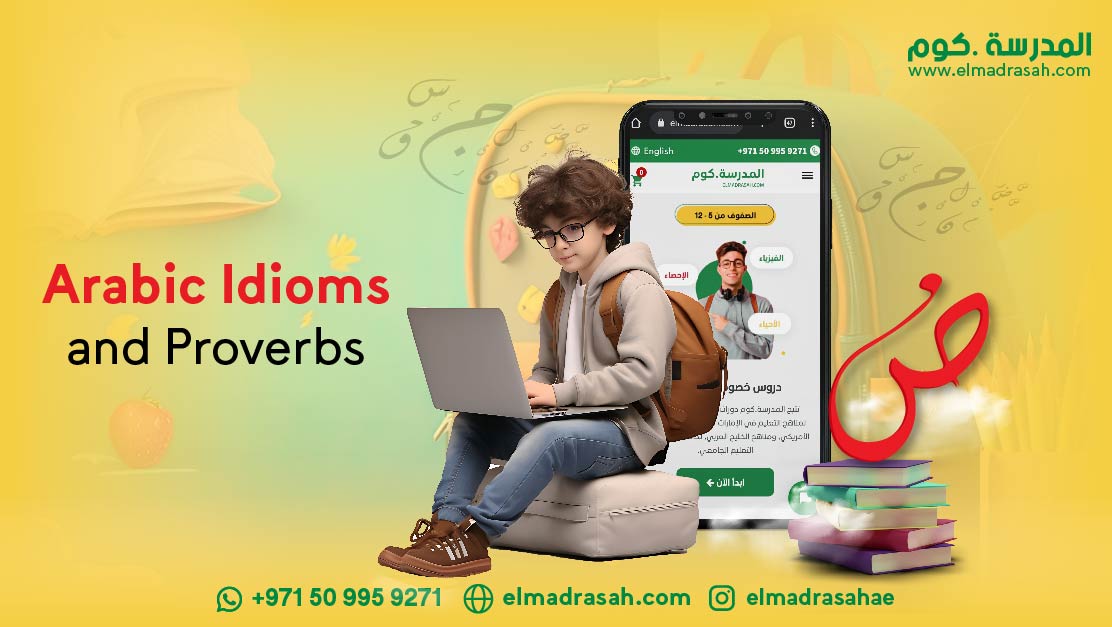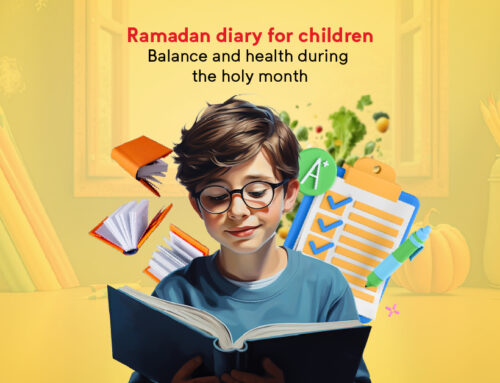- Video & Podcast Index
- Data Privacy and Protection for People Who Love Legalese
- Data Protection and Privacy for People Who Hate Legalese
- Guest Posting
- Partnerships

My Journey in Arabic
by Thomas Dalsgaard Clausen
It was an exciting realization to have; what had once been pure gibberish had after years of sometimes tedious work turned into a comprehensive language.
Learning a new language opened doors to new opportunities and windows to a culture and another way of thinking, and the feeling of satisfaction and success from finally reaching my goal now felt more potent than any drug. Now I knew that it was possible. I could teach myself a foreign language.
So what now?
I challenged myself to learn Arabic.
It was quite a spontaneous decision, like French had been before. This time I wanted a real challenge, and since these were the days of the so-called “Arab Spring”, I got the idea of studying this mysterious language.
I learned that day that the verb “to be” didn’t exist in Arabic. At least not in a way that had anything to do with the three European languages I already learned. I was quite exited while looking at this one word, and I had a feeling that the Arabic language would be quite a mouthful.
My Anki nightmare
I continued to study every morning, and I revised everything that I’d studied the previously day, because nothing seemed to stick. Where my first meeting with French had been like meeting an estranged relative, Arabic was something completely different. There were absolutely zero cognates, and nothing felt familiar, or even slightly related to my three languages; Danish, English and French.
In order to learn the new alphabet, I copied out my daily lessons by writing them by hand. I filled several notebooks that way. I had discovered the flashcard app Anki while learning French, and I began to use it daily to revise my Arabic sentences. Somehow I ended up learning almost my whole Assimil course by heart, and I could recite the sentences in the same, quite exaggerated, tone of voice, that the narrators used on the audio CDs.
Every time Anki showed me a sentence in French, I could write out the exact equivalent in Arabic by hand. But for some reason my brain didn’t seem to make a connection. I worked harder and harder, and at a certain point I spent around three hours a day only reviewing Anki flashcards.
I kept thinking that at some point I’d reach a breakthrough, but a moment came when I had to realize that my responses were automatic and robotic.
I had become a parrot. An Arabic speaking parrot.
Parallel reading, and getting back on the horse
One day when browsing a bookstore in a country far away, I found myself with a title in my hands that caught my eye: The Pelican Brief by John Grisham – a bilingual edition, strongly abridged, in English and Arabic.
I hesitated for a little while before buying the book, and started reading. At first it was very difficult to decipher the Arabic letters and turn them into sound in my head, let alone recognize any words, but I kept reading. First a sentence in English and then Arabic, a reading technique that has since become an important part of my study routine.
Back and forth. I realized that I was slowly consuming this book, following the plot and I was actually not even tempted to put it down. Within a few days, I had finished it, and although I couldn’t say for sure if any of the Arabic had stuck, I had noticed that my eyes had begun moving a little quicker down the pages, and that the words were beginning to sound out, almost automatically, in my inner ear.
Had some of the words and melodies of the language stuck from those Anki-days?
I got home from my vacation and ordered 4-5 bilingual books from the internet. Alice in Wonderland, The Old Man and the Sea, Animal Farm and a few other titles. I read for hours each day until I had finished them all. Something seemed to have changed during that year that I had neglected my Arabic studies.
Perhaps the massive Anki-attack had taken some kind of roots and transformed itself into something useful in my head. One thing was certain: I had regained my motivation to learn Arabic.
Tons of reading and meeting Arab speakers
I had a lot of time on my hands, and I learned that there was a refugee center in my town, so I decided to try and contact them and see if they could use me for some volunteer work. Perhaps I could meet some Arab-speaking people.
It turned out to be a great idea. I ended up helping in the refugee center’s ”bicycle workshop” – a place where the asylum seekers could go to repair old bicycles that they then could bring home for themselves and their families to better get around town.
I don’t know that much about bicycles, and neither did anybody else, but we got to discuss a lot, and I got the opportunity to activate a lot of that passive vocabulary that I’d gradually built up in my mind. I even got to speak some French with an extremely great guy from The Congo. Even though I’d studied for a long time, it remained quite difficult to communicate in Arabic. I just didn’t have the necessary vocabulary, and many of the bike-shop attendees spoke dialects of Arabic like Syrian and Iraqi that I wasn’t familiar with.
I quickly figured out the basic small-talk though, and I felt great socializing and drinking coffee with these people.
The fact about refugees centers, though, is that everyone is there temporarily, so I lost touch with most of the people I’d met in the bicycle shop. I did, however, make friends with Arabs outside of the refugee center, and have continued to have conversations with them in Arabic, and in turn helped them to learn Danish, my native language.
Making friends through Arabic has been a touching experience, and the people I have known because of my interest for their language and my willingness to speak to them has deeply affected me.
This isn’t something you think about when you first set out studying a language.
I’ve also had quite a few laughs, like the time, when I went to a newly opened butcher’s shop, run by Arabs, to ask if they had the spice “راز الحنوت” Raz el Hanout or literally “the head of the shop.”
Now, this is a spice mix common in the North African regions, and the shopkeeper was Middle Eastern. He looked at me, happy to hear me speak Arabic, and quickly replied ”راز الخروف؟ نعم” Raz el Kharouf? Naâm! ”Sheep’s head? Of course!”, and he promptly showed me the head of a sheep that had been slaughtered the previous morning.
Spreading out the focus to the Algerian dialect, Rome wasn’t built in a day. I’ve still got a long way to go before I’ll be an advanced speaker of Arabic, but you can only stay on track for so long before the temptations of other languages begin to overtake you. In my case, I try to keep my focus, if only partly, in the realm of the Arabic language and its dialects.
Along with my daily reading regimen of literary Arabic, I also dabble with German, Spanish and Algerian Arabic. The latter is perhaps the one that stands out the most.
When you study literary Arabic, you have to accept the fact that the language is only really used in political debate, news, written texts, children’s cartoons and religious sermons. Everything else is expressed through dialect, so unless you want to remind people of Mickey Mouse or the neighborhood Imam, you’d better speak in the correct dialect.
Learning Derdja has its obstacles though, especially for someone like me who uses reading as the primary means of studying languages.
Derdja is a highly oral language, and it is hardly ever written, and even when it is put down on paper, nobody can agree exactly on the right grammar, spelling and what vocabulary should be used, or even whether it should be written with the Latin, Arabic or even a third system.
At this point in my Algerian studies, I’m still at a point where I’m trying to gather useful material. Among other things, I’ve found an old Algerian Arabic phrasebook from the 19th century, that to my great surprise, uses language that is fairly close to the Derdja spoken today.
Where will it all end?
Learning French changed my life. I ended up going to Paris to live for a while, and even today I speak French in my everyday life, perhaps even more than I speak my native language. It’s impossible to guess where Arabic might eventually take me, but I now know from experience that acquiring a language will seriously challenge your way of thinking.
It also has its way of uncovering opportunities that would otherwise had been out of the question. I could easily see myself working with translation or something similar in the future. Or perhaps the often unruly and ever-changing Arabic world will cast off something on its route wherever it may be going.
Tags: language learning
- Guest Writing
Languages Around the Globe
© 2024 Languages Around the Globe. Built using WordPress and the Highlight Theme
To support our work, we invite you to accept cookies or to subscribe.
You have chosen not to accept cookies when visiting our site.
The content available on our site is the result of the daily efforts of our editors. They all work towards a single goal: to provide you with rich, high-quality content. All this is possible thanks to the income generated by advertising and subscriptions.
By giving your consent or subscribing, you are supporting the work of our editorial team and ensuring the long-term future of our site.
If you already have purchased a subscription, please log in
What is the translation of "journey" in Arabic?
"journey" in arabic, journey {noun}.
- volume_up جَوْلة
Night Journey {noun}
- volume_up إسْراء وَمِعْراج
outward journey
- volume_up رِحْلة ذَهابٍ
- journey home
- volume_up رِحْلة عَوْدةٍ
during the journey
- volume_up أَثْناءَ السَيْرِ
Translations
- open_in_new Link to source
- warning Request revision
Context sentences
English arabic contextual examples of "journey" in arabic.
These sentences come from external sources and may not be accurate. bab.la is not responsible for their content.
Monolingual examples
English how to use "journey" in a sentence, english how to use "night journey" in a sentence, english how to use "outward journey" in a sentence, english how to use "journey home" in a sentence, english how to use "during the journey" in a sentence, synonyms (english) for "journey":.
- jot down data in a notebook
- journalistic
- joy and sadness
- joy over sth
More translations in the Zulu-English dictionary .
Social Login

Comprehensive Overview: The Evolution and History of the Arabic Language

Alhamdulillah I‘m very pleased with the arabic and Qur’an lessons I receive from teacher Umm Tasneem and I‘m also content with the al-dirassa administration team who were very quick in answering any questions I had. In a month I progressed a lot and I cannot wait to continue my studies with al-dirassa. May Allah reward everyone at al-dirassa.

My Qur’an teacher is fantastic, she teaches me in a loving and kind way where I look forward to the lessons and learn so much. My Arabic teacher is equally as nice and has a lot of patience with me, she has great expertise in the field and I’ve progressed really quickly with her. Thank you Al-dirassa!
Some of the teacher are very good
Book your free trial lesson
Don’t want to go through the translation anymore?
30 free minutes with your qualified Egyptian teacher.
Arabic For Beginners for FREE
Get now your ebook for free.

Al-dirassa Institute offers you a gift to help you begin your journey to being fluent in Arabic and learning the Quran.

Introduction
Arabic phrases for giving directions, arabic phrases for transportation, arabic phrases for accommodations, miscellaneous arabic words and phrases, scenario 1: exploring the city, scenario 2: at the hotel, scenario 3: at the restaurant, scenario 4: at the tourist information center.
Help us share the article:
Traveling To an Arab Country? Here are 25 Excellent Arabic Phrases to Guide You
by Dania Ghraoui
24 Jul, 2023 . 6 mins read
Learning Tips
Hello, my dear Arabic language learners. The first thing that you might think about when traveling to an Arab country or countries that speak Arabic is the ability to communicate with the locals. This is vital, as it ensures safety and comfort during the trip. What’s more, the ability to articulate some essential phrases in the local language grants us the confidence to move around our temporary residence and remain highly functional. Whether the trip is for work, leisure, or studying, conversing in the local language can significantly enhance our overall experience.
And because Arabic is a language rich with history, culture, and diversity, your journey could be even more rewarding. As you’re exploring the historical sites of Egypt, the luxurious cityscape of Dubai, or the cultural wonders of Morocco, you’ll find that a basic understanding of Arabic is immensely helpful. From asking for directions, and haggling at a local market, to ordering food at a restaurant, your attempts to communicate in Arabic can open doors, bring smiles, and foster mutual respect.
In this post, we will introduce you to 25 Arabic phrases to use when you travel to an Arab country. These phrases have been carefully selected to cover various situations, including directions, transportation, accommodations, dining, etc. By learning and using these Arabic words and phrases, you will not only be able to navigate the Arabic-speaking world more easily but also enrich your cultural experience and make lasting memories.
In addition to providing you with essential Arabic phrases, this blog also includes real-life scenarios to help you apply what you’ve learned and see them in context. These scenarios, set in common travel situations, are designed to offer practical demonstrations of how and when to use the phrases. Whether you’re trying to find your way in a bustling city, ordering a meal in a restaurant, or checking into a hotel, these scenarios will give you a realistic insight into navigating the Arabic-speaking world. The aim is to ensure that you’re not only memorizing these phrases but also understanding their context, thereby enhancing your confidence to communicate effectively during your travels.
So, are you ready? Let’s start by looking at 25 essential Arabic words and phrases for travel , including vocabulary for directions, transportation, accommodations, and more.
When you’re in a new place, it’s important to be able to ask for directions. Here are some Arabic phrases that can help you navigate your way around:
Getting around in an Arabic-speaking country can be an adventure in itself. Here are some Arabic words and phrases related to transportation:
Whether you’re staying in a hotel, hostel, or guesthouse, here are some Arabic words and phrases related to accommodations:
Here are some additional Arabic words and phrases that can be useful for travelers:
In the following two scenarios, we’ll explore some common situations a traveler may encounter while visiting an Arabic-speaking country. In Scenario 1 , our tourist interacts with a local resident to get information about public transportation and the city’s layout. In Scenario 2 , the tourist checks into a hotel, inquiring about room availability and payment options. In Scenario 3 , our tourist is dining at a restaurant. They discuss dietary preferences and ask about the menu with a waiter, and in Scenario 4 , our traveler visits a tourist information center. They ask for a city map and inquire about a specific location.
These scenarios demonstrate the practical use of the essential Arabic phrases and vocabulary we learned for travelers in real-life situations .
Real-Life Arabic
Tourist: مرحبا!ً كم تبعد المدينة من هنا؟
(Hello! How far is the city from here?)
Local: تبعد المدينة حوالي خَمسَةَ كيلومترات من هنا. هل ترغب في السّير على الأقدام أو استخدام وسائل النّقل العامّ؟
(The city is about 5 kilometers from here. Do you prefer to walk or use public transportation?)
Tourist: أفضل استخدام وسائل النّقل العامّ. مِن أين يمكنني شراء تذاكر الحافلة؟
(I prefer to use public transportation. Where can I buy bus tickets?)
Local: يمكنك شراء تذاكر الحافلة من أجهزة البيع الآلي في محطة الحافلات أو داخل الحافلة نفسها.
(You can buy bus tickets from vending machines at the bus station or inside the bus itself.)
Tourist: شكراً! هل يمكنني الحصول على خريطة المدينة؟
(Thank you! Can I get a map of the city?)
Local: بالطّبع! يمكنك الحصول على خريطة مجّانية من مكتب السّياحة أو تنزيل تطبيق على هاتفك الذكي.
(Of course! You can get a free map from the tourism office or download an app on your smartphone).
Tourist: مرحباً! أريد غرفة فندقيّة لمدة ثلاثة أيام. هل لديكم غرف متاحة؟
(Hello! I want a hotel room for three days. Do you have available rooms?)
Receptionist: نعم، لدينا غرف متاحة. هل تفضّل غرفةً مزدوجةً أم مفردةً؟
(Yes, we have available rooms. Do you prefer a double or a single room?)
Tourist: أريد غرفة مزدوجةً من فضلك. هل يمكنني استخدام بطاقة الائتمان هنا؟
(I want a double room, please. Can I use my credit card here?)
Receptionist: بالطّبع! يمكنك استخدام بطاقة الائتمان للدّفع.
(Of course! You can use your credit card for payment.)
Tourist: ما هو رقم الهاتف الخاصّ بالفندق؟
(What is the hotel’s phone number?)
Receptionist: رقم الهاتف الخاصّ بالفندق هو 123-456-7890. إذا كنت بحاجة إلى أي مساعدة أخرى، لا تتردد في الاتصال بنا.
(The hotel’s phone number is 123-456-7890. If you need any further assistance, please don’t hesitate to contact us.)
Tourist: شكراً لمساعدتك!
(Thank you for your help!)
Receptionist: وداعاً ! استمتع بإقامتك!
(Goodbye! Enjoy your stay! )
Tourist: مرحبا! أنا نباتي. هل لديكم خيارات نباتية؟
(Hello! I’m a vegetarian. Do you have vegetarian options?)
Waiter: نعم، لدينا العديد من الخيارات النباتية. يمكنك الاطلاع على القائمة هنا.
(Yes, we have many vegetarian options. You can check the menu here.)
Tourist: هل هذا الطبق حار؟
(Is this dish spicy?)
Waiter: لا، هذا الطبق ليس حارًا.
(No, this dish is not spicy.)
Tourist: رائع! أود طاولة لشخصين، من فضلك.
(Great! I’d like a table for two, please.)
Waiter: بالطبع، تفضل.
(Of course, right this way.)
Tourist: مرحبا! هل يمكنني الحصول على خريطة المدينة؟
(Hello! Can I get a map of the city?)
Information Officer: بالطبع! ها هي خريطة المدينة. هل تحتاج إلى مساعدة في تحديد المواقع؟
(Of course! Here is the city map. Do you need help identifying the locations?)
Tourist: نعم، من فضلك. أين المتحف الوطني؟
(Yes, please. Where is the National Museum?)
Information Officer: إنه في الجزء الشرقي من المدينة، يمكنك استخدام الخريطة للوصول إليه.
(It’s in the eastern part of the city. You can use the map to get there.)
We hope this excellent collection of Arabic travel words and phrases has been helpful. We’re wrapping up for today, dear learners, and I truly hope you’ve found our journey through these Arabic travel phrases and real-life scenarios valuable. You know, these words and phrases are more than just tools for communication – they’re your keys to connecting with the people and culture of the Arabic-speaking world.
Speaking even a little bit of the local language can make your travel experiences richer and more memorable. And trust me, locals always appreciate it when visitors try to speak their language, even if it’s just a few words or phrases.
So, keep practicing these phrases – they’re your first steps into the beautiful world of the Arabic language. And remember, there’s so much more to discover beyond these basics.
As you set off on your travels, remember to stay curious, enjoy every moment, and embrace the joy of learning a new language. And above all, have a wonderful journey. Wishing you all safe travels, or as we say in Arabic, رحلة سعيدة – ‘Happy Journey’!
Now, to assist you further in your Arabic language journey, I’m excited to share with you a comprehensive planner we’ve created. It has a 30-page worksheet complemented by over 200 exercises and activities designed to enhance your grasp of the Arabic language. This resource is an excellent companion to your studies and will provide you with structured practice to help you retain and apply what you’ve learned.
https://www.alifbee.app/planner

Why Learn Arabic? 8 Benefits to Increasing Your Knowledge of Arabic Language
20 Jul, 2023 . 6 mins read

Arabic Greetings: 10 Easy Ways to Ask "How Are You?" in Arabic
31 Jul, 2023 . 6 mins read
Want to learn Arabic?
Achieve incredible
results with our platform

24 Jul, 2023 . 5 mins read

24 Jul, 2023 . 4 mins read
More from AlifBee Blog
Five Essential Occasions in Islam
Celebrated Occasions in Islam Five main occasions are celebrated by Muslims around the world every year. Each holds a unique […]
Uncategorized
6 Iconic Ramadan Words Explained
Iconic Ramadan Words As the holy month of Ramadan graces us once again, it brings with it a unique blend […]
10 Tips for A Healthy Ramadan
Importance of A Healthy Ramadan Diet Ramadan offers a unique opportunity for Muslims to cleanse both their soul and body. […]
12 Popular Foods in Ramadan
Foods in Ramadan Ramadan is the holy month of fasting, reflection, and community for Muslims around the world. It is […]
Arabic Idioms and Proverbs

The Arabic language is known for its intricate beauty, rich history, and cultural significance. When learning Arabic for non-native speakers, they often encounter many linguistic challenges. One fascinating aspect of Arabic that captures the essence of its culture and linguistic complexity is its idiomatic expressions and proverbs. In this article, we will delve into the world of Arabic alphabets and idioms, exploring their significance, usage, and connection to learning the language as a non-native speaker. We will also introduce Elmadrasah.com’s Arabic courses, which provide a valuable resource for those seeking to enhance their conversational skills and understanding of Arabic idioms and Arabic alphabet.
Understanding Arabic Idioms: A Journey Through Culture
Understanding Arabic idioms is not just a linguistic exercise; it is a journey that leads you through the intricacies of Arab culture and history. Arabic idioms and proverbs are an essential part of daily communication, and by delving into their significance, you gain a deeper appreciation of the Arabic-speaking world. Let’s explore this journey through culture in more detail.
Cultural Significance:
Arabic idioms serve as windows into the cultural values and beliefs of the Arab world. They reflect the collective experiences, wisdom, and traditions passed down through generations. When you understand these idioms, you’re not merely learning phrases; you’re immersing yourself in the cultural mindset. For example, the idiom -كُتِبَ عَلى الأرْبَعِين- (-It was written on the forty-) reflects a belief in destiny and the concept that some things are preordained. This connection to fate and destiny is deeply rooted in Arab culture and Islamic tradition.
Everyday Life:
Arabic idioms often have their origins in daily life. They can be inspired by agriculture, nature, or common activities. For instance, the idiom -مِن بَابِ السَّمَاء السَّابِع- (-From the seventh heaven’s door-) is derived from the idea of ascending to the highest levels of joy and excitement. Understanding this idiom gives you insight into the value placed on joy and the emotional richness of Arab culture.
Social Interactions:
Arabic idioms play a significant role in social interactions. They are used not only for effective communication but also to build rapport and express empathy. By using idioms, you demonstrate an understanding of the cultural nuances that guide conversations. For instance, when you use the idiom -الجوع يفسد ذاق الطعام- (-Hunger spoils the taste of food-), you show an understanding of the universal human experience of being too hungry to be picky about what you eat.
Art and Literature:
Arabic literature and art have a rich tradition of incorporating idioms and proverbs. Classical Arabic poetry, for instance, is renowned for its use of figurative language, including idiomatic expressions. To appreciate Arabic literature fully, one must be well-versed in idioms and their cultural connotations.
Non-Verbal Communication:
Arabic idioms are not limited to spoken or written language ; they also find expression in non-verbal communication. Facial expressions, gestures, and body language often accompany the use of idioms, enriching the depth and subtlety of the message. Learning these idioms helps you decipher not only the words but also the non-verbal cues that come with them.
Preserving Tradition:
The continued use of Arabic idioms and proverbs is a testament to the resilience of tradition and culture. In a rapidly changing world, these linguistic artifacts act as bridges between the past and the present. They remind contemporary society of its heritage and keep the wisdom of previous generations alive.
Building Relationships:
Using Arabic idioms and Arabic alphabet demonstrates respect for the language and culture, which can foster stronger connections with Arabic-speaking people. When you can participate in conversations by incorporating idiomatic expressions, you not only show your linguistic proficiency but also a willingness to embrace and honor the culture.
Problem Solving:
Arabic idioms are not just about culture and tradition; they also offer valuable insights and solutions. Many idioms contain practical advice and life lessons. For example, -اللي مشي بكيسه ما قعدش- (-The one who walked with his bag did not stumble-) emphasizes the importance of preparation and foresight in overcoming challenges. Such idioms are not only linguistically intriguing but also serve as valuable guides for navigating life’s complexities.
Understanding Arabic idioms is an integral part of learning Arabic for non-native speakers . It is a journey that leads you through the cultural landscape of the Arab world, offering glimpses into traditions, beliefs, and daily life. Elmadrasah.com’s Arabic courses are a valuable resource for those seeking to explore this linguistic and cultural journey, providing the tools and knowledge needed to navigate the world of Arabic idioms with confidence and understanding. As you delve deeper into this fascinating realm, you enrich your language skills while embracing the diverse and intricate tapestry of Arab culture.
Learning Arabic Idioms with Elmadrasah.com
Learning Arabic idioms with Elmadrasah.com is an enriching and effective experience for non-native speakers looking to deepen their understanding of the Arabic language. Elmadrasah.com offers a comprehensive platform with dedicated Arabic courses that cater to learners of all levels, providing a focused approach to mastering the language, including its idiomatic expressions. Here are some key details about how Elmadrasah.com facilitates the learning of Arabic idioms:
Comprehensive Curriculum:
Elmadrasah.com’s Arabic courses are meticulously designed to cover a wide range of topics, ensuring that learners have a strong foundation in Arabic language and culture. The curriculum encompasses various elements, such as vocabulary, grammar, pronunciation, and, notably, the use of idiomatic expressions. This well-rounded approach equips students with the necessary skills to communicate effectively in Arabic.
The idioms are integrated into the courses at appropriate levels, allowing learners to gradually incorporate them into their vocabulary. This gradual introduction ensures that students are not overwhelmed by the complexity of idiomatic expressions while simultaneously gaining a deep understanding of their cultural and linguistic significance.
Native Instructors:
One of the most significant advantages of learning with Elmadrasah.com is the opportunity to study with native Arabic-speaking instructors. These instructors bring a wealth of knowledge and experience in the Arabic language, and they have a deep understanding of the cultural nuances and contextual usage of idioms. Learning from native speakers is invaluable for gaining an authentic grasp of idioms, as students receive not only linguistic guidance but also cultural insights that enhance their comprehension and usage of idiomatic expressions.
Practical Use:
Elmadrasah.com places a strong emphasis on practical use throughout its Arabic courses. This focus is particularly beneficial when it comes to learning idiomatic expressions, as it prepares students to apply what they learn in real-life situations. In the context of idioms, practical use involves teaching students when and how to use these expressions in everyday conversations, ensuring they can effectively convey their thoughts, emotions, and ideas.
The incorporation of idioms into practical scenarios allows students to understand the subtleties of these expressions and their cultural significance. This hands-on approach makes it easier for learners to recognize idioms when they encounter them in Arabic conversations and text, enabling them to participate actively in conversations and discussions.
Interactive Learning:
Elmadrasah.com’s Arabic courses are designed to be interactive and engaging. They offer a variety of multimedia resources, including videos, audio recordings, and interactive exercises. This interactive approach helps students practice their conversational skills while using idiomatic expressions in context.
Additionally, the platform often employs real-life dialogues and scenarios that incorporate idioms, allowing students to observe how these expressions are used in authentic conversations. This practical exposure is essential for mastering idiomatic expressions and integrating them into everyday communication.
Progress Tracking:
Elmadrasah.com’s courses offer progress tracking and assessments to monitor each student’s development. This feature ensures that students are continually improving their language skills, including their understanding and use of idiomatic expressions. Progress tracking helps learners identify areas where they may need additional support or practice, allowing them to tailor their learning experience to their specific needs.
Elmadrasah.com is an excellent resource forlearning Arabic for non-native speakers. Their comprehensive curriculum, native instructors, focus on practical use, interactive learning materials, and progress tracking make it a highly effective platform for mastering the intricacies of Arabic idiomatic expressions. By enrolling in Elmadrasah.com’s Arabic courses, learners can enhance their conversational skills, cultural understanding, and overall proficiency in the Arabic language, all while becoming adept at using idioms with confidence and authenticity.
Arabic Idioms: A Journey of Discovery
1. the language of metaphor.
Arabic idioms are often rooted in metaphorical language. They use vivid imagery to convey complex ideas, emotions, and experiences. These metaphors are deeply embedded in the Arabic culture, and understanding them is crucial for non-native speakers looking to connect with Arabic-speaking communities on a deeper level.
For example, the idiom -كُتِبَ عَلى الأرْبَعِين- (Kutiba ‘ala al-arba’in) translates to -It was written on the forty.- This metaphor suggests that something is destined to happen, as if it has already been written by a higher power. In Arabic culture, the number forty has special significance, denoting a complete and predetermined period of time.
2. Rich Historical and Cultural Roots
Arabic idioms are often steeped in history and culture. They reflect the traditions, values, and experiences of the Arabic-speaking people throughout the centuries. These idioms can carry echoes of ancient civilizations, including the Phoenicians, Egyptians, and Mesopotamians.
For instance, the idiom -العَبرَة في الإشَارَة لَيْسَ العَبرَة في الكُلام- (Al-‘ibrah fi al-isharah laysa al-‘ibrah fi al-kalam) conveys the wisdom that actions speak louder than words. It reflects the importance of deeds in Arabic culture, where one’s actions often define their character and intentions.
3. The Importance of Oral Tradition
Arabic idioms have been passed down through generations, primarily through oral tradition. They have been used in everyday conversations, storytelling, and poetry for centuries. Many of these idiomatic expressions have made their way into Arabic literature, further solidifying their importance in the language.
In the case of -اللي مَشِي بِكَيْسَه مَا قَعَدَش- (Alli mashi bi-kaysuh ma’a qa’adash), this proverb reflects a historical lesson in preparation. It suggests that being ready for challenges and uncertainties is a timeless concept, and it has been communicated through idiomatic expressions for generations.
4. Emotions and Cultural Values
Arabic idioms are not just linguistic tools; they are also a means of expressing emotions and cultural values. By understanding and using these idioms, non-native speakers can connect with Arabic-speaking communities on a more profound level.
For example, the idiom -الوَقت يَطير- (Al-waqt yatir) serves as a reminder of the transient nature of time. It conveys the idea that time passes quickly, a sentiment that is universal but expressed with a unique charm in the Arabic language.
5. Diverse Regional Influences
Arabic idioms are not uniform across all Arabic-speaking regions. Different dialects and regions may have their own idiomatic expressions and proverbs, reflecting their specific histories and cultural influences. Learning idioms from different regions can enhance one’s ability to engage with a wide range of Arabic speakers.
The idiom -الصَدِيق وَقت الضَيق- (As-sadeek waqt ad-dayq), emphasizing the value of true friendship during difficult times, is a sentiment that transcends regional boundaries and resonates with people from various Arabic-speaking regions.
Arabic idioms are a fascinating and integral part of the Arabic language and culture. As non-native speakers delve into the intricacies of these idiomatic expressions, they embark on a journey of discovery that not only enhances their linguistic proficiency but also deepens their cultural understanding. Arabic idioms offer a rich tapestry of metaphors, historical insights, and the opportunity to connect with the vibrant Arabic-speaking world on a more profound level. Learning and using these idioms is a gateway to unlocking the heart and soul of the Arab world.
Arabic idioms and proverbs are a treasure trove of cultural richness and linguistic depth. As non-native speakers embark on their journey to master the Arabic language, understanding and using these idioms is a crucial aspect of building conversational skills and forming meaningful connections with Arabic-speaking communities.
Elmadrasah.com’s Arabic courses provide a valuable resource for those seeking to enhance their Arabic language proficiency, including the mastery of idiomatic expressions. By offering comprehensive curricula, native instructors, and a focus on practical use, Elmadrasah.com empowers learners to navigate the intricate world of Arabic idioms with confidence and grace.
As you delve deeper into the Arabic language, remember that idioms and proverbs are more than just linguistic curiosities; they are the keys to unlocking the rich culture, history, and traditions of the Arabic-speaking world. Embrace this linguistic journey, and you will not only gain proficiency but also a deeper appreciation of the Arabic language and its intricate tapestry of idiomatic expressions.
Leave A Comment Cancel reply
Save my name, email, and website in this browser for the next time I comment.
Related Posts

Best 6 Ramadan diary for children: Balance and health during the holy month

Understand the basics:Explanation of Emsat physics and its applications in education

Qualitative analysis of EMSAT test questions: understanding the requirements

ELMADRASAH.COM website is the first virtual school specialized in university admission courses (TOEFL – IELTS – SAT – AMAT – capabilities – achievement), and children’s development courses in the Arab world.
Site sections
The United Arab Emirates
+971 50 995 9271
[email protected]
Payment gateways

Follow ELMADRASAH.COM
© Copyright 2022| All Rights Reserved | Powered by Elmadrasah.com
- privacy policy
- Terms of Service

Start Your Journey to Fluency with Arab Academy
Our Online Arabic courses for kids , teens, and adults are available 24/7 for all levels (beginner to advanced).
Online Arabic courses for kids , teens and adults available 24/7 for all levels (beginner to advanced).
Learn Online
Learn in Cairo
Take a Proficiency Test


How It Works
Enrolling with Arab Academy will take you on an exciting journey as you learn to speak the Arabic language online through an effective and trusted resource. Our simple and comprehensive steps will put you on the right track to complete your learning journey easily and quickly, whether it’s for work, school, or personal enrichment.
After you choose a payment package for one of our Arabic language courses, you can then sign up and start learning immediately. After making the payment, you can meet with a course advisor who will walk you through the orientation process and make sure you are enrolled in the best course for your needs.
Enrolling with Arab Academy will take you on an exciting journey as you learn to speak the Arabic language online through an effective and trusted resource.
Our simple and comprehensive steps will put you on the right track to complete your learning journey easily and quickly whether it’s for work, school, or personal enrichment.
Learn all about how our programs work and what makes Arab Academy the best choice to learn Arabic.
Arabic Online
Our structured online Arabic courses cover everything from the basic alphabet to the culture and everyday vocabulary. We help our students to learn through fun activities, writing assignments, and tests. The courses work to help our students gain a solid foundation so that they can speak, write, and read the language coherently. Take a look at our course outlines to gain a better understanding of what our online classes offer.
We also offer programs tailored to different age levels. Whether you are an adult looking to learn Arabic, or you have a teen or young child who has a desire to learn, you can choose from our flexible language courses the option that best suits your needs. Our programs are available 24/7 for you to enjoy at your convenience. Learn more about how our programs work and what makes Arab Academy the best choice to learn Arabic by contacting our team or exploring our website.

Arabic for Teens & Adults
- Standard Arabic
- Colloquial Arabic
- Islamic Arabic
- Courses for Teens

Arabic for Kids
- Courses for Kids
Learn In Cairo
At Arab Academy, we believe that many students learn a foreign language best by putting it into practice. What better way for students to practice their Arabic language skills than an Egyptian cultural immersion experience? Traveling to a new country allows students to experience the rich Arab heritage, literature, music, food, and more. Students can learn firsthand about the customs and traditions of that country. Challenge yourself to try something new with our immersion program and learn Arabic in Cairo .
Your experience in Cairo will include:
Professional, Qualified Native Teachers
Central Location
Various Courses Tailored to Different Proficiency Levels
At Arab Academy, we believe that students learn a foreign language best by putting it into practice. What better way for students to practice their Arabic language skills than an Egyptian cultural immersion experience?
Professional Qualified Native Teachers
Different Courses for Different Levels
Helpful Resources from Our Blog

April 2024 Student Spotlight

The Different Forms of Arabic Letters and How They Come Together

March 2024 Student Spotlight
Get started learning the arabic language today.
Sign up and find out why so many people, schools, and universities have turned to Arab Academy for a comprehensive and successful Arabic language learning program. Learning the Arabic language allows you to connect with new people, learn about a unique culture, enjoy professional opportunities, and so much more. The benefits of learning a new language also allow you to enjoy enhanced personal growth and better communication skills. Send us an email or fill out our online form today to learn more about our pricing , lessons, and cultural immersion experiences.

Omar Ashmawi, UK
"Arab Academy opened the door to speak Arabic comfortably with strangers and family, I’ll come back to get fluent."

Joanna Maddocks, UK
"Arab Academy has given me more confidence in Arabic and more knowledge on cultural topics in Egypt."

Amadou Talla, USA
"Arab Academy has opened my mind to a new culture and I've made a lot of new friends."
Arabic for Adults
- Quranic Arabic
- Kids Arabic Courses
- AB Initio GCSE
Helpful Resources
- Demo Videos
- Live Support
- Testimonials
3 Alif Kamil El-Shinnawi Street Garden City 11451 Cairo , Egypt
+20 111 670 4021
+20 111 218 0305
+20 227955201

Copyright 2012 – 2021 Arab Academy | All Rights Reserved
How To Wish Someone a Safe Trip in Arabic

If you live in the Arab world for any real length of time, eventually either you or someone you know is going to take a trip somewhere. If it’s someone you know, you’ll probably want to say something like “Have a safe trip” or the oft-borrowed-from-the-French “Bon Voyage”, but in Arabic.
So, how do Arabs wish each other a safe journey? Well, that’s what we’re going to figure out today. Not only will you learn what to say but you’ll also learn what people might say to you when you finally leave the country.
As Chinese philosopher Lao Tzu once said, “A journey of a thousand miles begins with a single step.” So, let’s get to stepping as we begin today’s journey into the Arabic language.
We Miss You Already!
There are many different words and phrases that Arabs use to wish someone a good trip. However, it mostly depends on where the person is from.
We’ll start with perhaps what is the most widely understood phrase for wishing someone an enjoyable journey - Modern Standard Arabic’s رِحلَة سَعيدَة / riHlah saʻeedah / or “Happy Trip”.
If you’re in Egypt, however, you might want to say “! تِروح و تيجي بِالسَّلامَة ” / tirooH w teegee bissalaamah / meaning “Come and go safely!” What’s more, if it’s you on the receiving end of this Egyptian expression, then your reply should be الله يِسَلِّمَك / allaah yisallimak / to a male or الله يِسَلٍّمِك / allaah yisallimik / to a female.
In the other part of the Middle East, the more religiously inclined might say short blessings over you such as الله يحميك وتوصَل بِالسَّلامَة / allaah yHmeek w tooSal bissalaamah / “May God have mercy on you and may you arrive safely” or “ حَفيظَك الله ” / HafeeDHaak allaah / meaning “May God keep you safe.”
Finally, when you’re deboarding an aircraft, the Arabic-speaking stewardess may say “ رافَقَتك السَّلامَة / raafaqatk issalaamah /. Used for “Goodbye”, it literally translates to “May safety accompany you” and is generally only used when saying goodbye to a passenger of any vessel.
Have a Great Arabic Journey!
Of course, these aren’t the only ways to wish someone a safe trip. However, they are a good beginning to your very own Arabic language journey when you learn Arabic the right way with the Kaleela Arabic language learning app. Download it today and let Kaleela guide you every step of the way. Visit kaleela.com for more information.

- Meaningful Arabic Quotes That’ll Get You Through Your Day
- Love Is In The Air – Express Your Love With These Sweet Arabic Words
- The Arabic Alphabet – Tips On How To Pronounce The Difficult Letters
- Basic Words in Arabic – The Most Commonly Used
- Arab Times – Telling The Time In Arabic
- Syrian Dishes – 10 Of Syria’s Most Delicious Main Dishes
- Animals In Arabic Language – Names And Special Meanings
- Arabic Prepositions – Commonly Used In Everyday Conversation
- Days In Arabic – Learn To Say The Days Of The Week
- A Look At Capital Cities Of Arab Countries – A Complete List
Get updates & special offers from kaleela

- Learn Fusha Arabic: Master the Classical Arabic with AlBaher
- The Arabic World

Are you a student seeking to expand your cultural horizons or a professional looking to boost your career prospects? The key to both lies in the captivating world of Fusha Arabic.
Fusha Arabic, the classical form of the language, holds immense historical and cultural significance. But it’s not just about tradition; it’s a modern gateway to endless opportunities. Consider these statistics:
Statistics show a growing demand for Fusha Arabic speakers across different sectors. As globalization continues, businesses, governments, and organizations seek individuals who can bridge cultural and linguistic gaps, making Fusha Arabic speakers in high demand.
Discover the personal and professional benefits in this guide. Your journey begins now!
Table of Contents
Understanding Fusha Arabic
Fusha Arabic, also known as Classical Arabic or اللغة العربية الفصحى (al-lughah al-ʿArabīyah al-fuṣḥā) in Arabic, is the pristine and classical form of the Arabic language. It serves as the linguistic foundation upon which all other Arabic dialects and forms are built. Here are some key aspects of Fusha Arabic:
Historical Significance:
Fusha Arabic has ancient roots and has been preserved over centuries. It is the language of the Quran, making it the holy and sacred language of Islam. As such, it holds immense cultural and religious importance.
Universal Understanding:
Fusha Arabic is understood by Arabic speakers worldwide, regardless of their native dialect. This makes it a unifying language that facilitates communication among Arabic-speaking communities from different regions.
Literary and Academic Use:
It is the language of classical Arabic literature and poetry , philosophy, and academic texts. Many influential works of literature and scholarship in the Arab world are written in Fusha Arabic, and it’s the language of formal academic discourse.
Formal Communication:
Fusha Arabic is used in formal settings, including official documents, formal speeches, news broadcasts, and diplomatic communication. It is the language of formality and eloquence.
Fusha Arabic is a unifying language understood by Arabic speakers worldwide. Learning it provides access to a broader audience, enhancing your ability to communicate effectively and build relationships across Arabic-speaking countries.
Benefits of Learning Fusha Arabic
Mastering Fusha Arabic opens a world of cultural enrichment and unparalleled career opportunities as statistics reveal a growing demand for Fusha Arabic speakers, with numerous fields seeking individuals fluent in this refined form of communication.
Here are the main advantages personally and professionally:
Personal Advantages:
Cultural enrichment:.
Learning Fusha Arabic allows you to delve into the rich and diverse culture of Arabic-speaking communities. You can explore classical literature, poetry, music, and art, gaining a deeper understanding of their traditions and values.
Intellectual Growth:
Studying Fusha Arabic is a mentally stimulating endeavor. It challenges your cognitive abilities, enhances problem-solving skills, and boosts memory, contributing to overall mental acuity.
Interpersonal Connections:
It opens doors to meaningful connections with Arabic-speaking individuals, fostering cross-cultural friendships and expanding your global network.
Travel and Exploration:
Knowing Fusha Arabic enhances your travel experiences in Arabic-speaking countries. It enables you to navigate confidently, engage with locals, and gain a more authentic perspective of the culture.
Spiritual Connection:
If you’re interested in Islam, learning Fusha Arabic allows you to understand the Quran in its original language, deepening your spiritual connection and comprehension of Islamic teachings.
Professional Advantages:
Career opportunities:.
Proficiency in Fusha Arabic is highly sought after in various professions. It can open doors to careers in translation, diplomacy, journalism, academia, and international business, where formal communication is essential.
Global Communication:
In an increasingly globalized world, Fusha Arabic equips you to communicate with Arabic-speaking partners, clients, or colleagues, enhancing your ability to negotiate, collaborate, and build relationships.
Competitive Edge:
In competitive job markets, having Fusha Arabic on your resume sets you apart. It demonstrates your commitment to linguistic diversity and your capacity to engage in international contexts.
Cultural Sensitivity:
Understanding Fusha Arabic promotes cultural sensitivity and respect. This skill is invaluable when working in multicultural environments or on international projects.
Research and Academia:
If you’re in academia, Fusha Arabic proficiency allows you to access and contribute to a wealth of academic resources and engage with scholars from Arabic-speaking regions.
Immerse yourself in the poetic verses of Rumi or explore the philosophical works of Avicenna. Be it as a scholar, translator, or diplomat, your proficiency in Fusha Arabic will be a prized asset.
Why You Need Tailored Courses to Learn Fusha?
Languages become bridges to unexplored realms of culture, knowledge, and opportunity.
But the truth: Learning Fusha Arabic isn’t merely about acquiring words and phrases; it’s about embracing a journey of cultural immersion and linguistic mastery.
Here are the main challenges you may face:
1- Individualized Learning Pace:
Not everyone learns at the same speed. Tailored courses adapt to your unique pace and learning style, ensuring you grasp the intricacies of Fusha Arabic at a comfortable rate, without feeling rushed or overwhelmed.
2- Customized Curriculum:
Tailored courses are designed to meet your specific goals and objectives. Whether you aim to use Fusha Arabic for academic pursuits, business communication, or cultural exploration, the curriculum is tailored to your needs.
3- Focused Attention:
In a tailored course, you receive personalized attention from experienced instructors. This means your questions are answered promptly, and your challenges are addressed comprehensively, leading to a deeper understanding of the language.
4- Flexibility:
Tailored courses are adaptable to your schedule and availability. Whether you have a busy work life or other commitments, personalized instruction can be designed to accommodate your time constraints.
5- Targeted Skill Development:
If you have particular areas of weakness or specific linguistic goals, tailored courses can emphasize these aspects, ensuring you make significant progress where it matters most.
6- Cultural Context:
Learning Fusha Arabic involves understanding cultural nuances and context. Tailored courses can incorporate cultural insights and real-world scenarios, making your language skills more practical and relevant.
7- Motivation and Accountability:
Personalized courses often come with built-in accountability mechanisms. Instructors can track your progress, provide regular feedback, and motivate you to stay committed to your language learning journey.
8- Overcoming Challenges:
Learning a new language can be challenging. Tailored courses can address any obstacles or language-specific difficulties you may encounter, helping you overcome them effectively.
9- Confidence Building:
Through one-on-one or small group interactions in tailored courses, you have more opportunities to practice speaking and using Fusha Arabic. This builds your confidence in using the language in real-life situations.
10- Long-Term Success:
Tailored courses focus on ensuring you not only learn Fusha Arabic but retain your knowledge for the long term. This is crucial if you plan to use the language professionally or academically.
AlBaher Center: Your Path to Fluent Fusha Arabic
The Fusha Course at AlBaher Arabic Language Center is structured into four levels: Beginner, Pre-Intermediate, Intermediate, and Advanced. Each level aims to develop students’ vocabulary, analytical skills, and language proficiency. The program follows the Common European Framework of Reference for Languages (CEFR) standards.
- Beginner Level (CEFR: A1+/A2): Introduces basic communication skills, cultural understanding, and simple reading and writing abilities.
- Pre-Intermediate Level (CEFR: A2/B1): Enhances everyday communication, sentence complexity, and the ability to read and write short texts.
- Intermediate Level (CEFR: B1/B2): Focuses on detailed descriptions, complex speech, advanced reading comprehension, and longer written pieces.
- Advanced Level (CEFR: B2/C1): Aims for fluency in complex conversations, understanding lectures, analyzing various texts, and producing well-structured, advanced written content.
Additionally:
- Students can choose courses based on their proficiency, goals, and timeframe.
- AlBaher conducts placement tests to ensure accurate program selection.
- Class sizes are small, with a maximum of six students.
- Long-term courses spanning 12 weeks are available, suitable for extended study and preparation for academic or career goals.
How Long Does It Take To Learn Fusha Arabic?
The time it takes to learn Fusha Arabic can vary significantly depending on several factors, including your starting proficiency level, the intensity of your study, and your individual learning pace. Here’s a general guideline:
- Individual Learning Pace: Everyone learns at a different rate. Some individuals grasp language concepts quickly, while others require more time. Your personal learning style and pace play a significant role.
- Language Goals: The level of proficiency you aim to achieve impacts the learning duration. Basic conversational skills may be acquired relatively quickly, but reaching fluency for professional or academic use typically takes years of dedicated study.
- Prior Language Experience: Depending on your previous exposure to Arabic or related languages, your starting point can vary widely. Those with some linguistic similarities may progress faster than complete beginners.
Consistency and quality of instruction play crucial roles in the speed of progress. Tailored courses and regular practice can expedite learning.
Fusha Arabic, the language of elegance and heritage, beckons. Its historical significance, universal appeal, and professional advantages await your exploration.
At the AlBaher Arabic Language Center, a structured curriculum aligned with Common European Framework of Reference for Languages (CEFR) standards guides learners through four progressive levels. Whether you aim for basic conversational proficiency or advanced fluency, tailored courses at AlBaher are designed to help you succeed.
Remember, the timeline varies, but with dedication and the right guidance, fluency is within reach. Embark on this enriching journey today.
How to Start Learning Fusha Arabic?
To start learning Fusha Arabic, begin with clear goals, choose suitable resources like books or language apps, master the Arabic script, learn basic vocabulary and grammar, practice listening, speaking, reading, and writing, immerse yourself in Arabic culture, join language communities, stay consistent, set milestones, seek feedback, and consider travel for immersion. Learning a new language is a gradual process, so stay motivated and enjoy the journey.
Is Fusha Arabic Hard?
Fusha Arabic can be challenging due to its unique script, complex grammar, and rich vocabulary. However, with dedication and practice, it is certainly learnable. Success depends on individual factors like background and motivation.
Previous post
Learn Modern Standard Arabic to Language Proficiency
Learn levantine arabic with albaher arabic language center, you may also like.

DLPT and DLAB for Language Learners in Jordan

Guide to Learning Levantine Arabic in Jordan

Free Online Arabic Courses for Aspiring Learners in Jordan
Login with your site account.
Remember Me
Not a member yet? Register now
Register a new account
I accept the Terms of Service
Are you a member? Login now
- Cambridge Dictionary +Plus
Translation of journey – English–Arabic dictionary
Your browser doesn't support HTML5 audio
(Translation of journey from the Cambridge English-Arabic Dictionary © Cambridge University Press)
Examples of journey
Translations of journey.
Get a quick, free translation!

Word of the Day
to add harmonies to a tune

Shoots, blooms and blossom: talking about plants

Learn more with +Plus
- Recent and Recommended {{#preferredDictionaries}} {{name}} {{/preferredDictionaries}}
- Definitions Clear explanations of natural written and spoken English English Learner’s Dictionary Essential British English Essential American English
- Grammar and thesaurus Usage explanations of natural written and spoken English Grammar Thesaurus
- Pronunciation British and American pronunciations with audio English Pronunciation
- English–Chinese (Simplified) Chinese (Simplified)–English
- English–Chinese (Traditional) Chinese (Traditional)–English
- English–Dutch Dutch–English
- English–French French–English
- English–German German–English
- English–Indonesian Indonesian–English
- English–Italian Italian–English
- English–Japanese Japanese–English
- English–Norwegian Norwegian–English
- English–Polish Polish–English
- English–Portuguese Portuguese–English
- English–Spanish Spanish–English
- English–Swedish Swedish–English
- Dictionary +Plus Word Lists
- English–Arabic Noun Verb
- Translations
- All translations
Add journey to one of your lists below, or create a new one.
{{message}}
Something went wrong.
There was a problem sending your report.
Arabic Journey

Three Modules in One Click
Access the whole Arabic Journey (3 modules) with one click...
For Absolute Beginners
There are no prerequisites. Just bring a desire to learn and a can do attitude...
Learn at your Own Pace
Lessons have been designed to fit around your needs - each lesson is 10-15 minutes long...
If you are not satisfied after completing the course, we will give you a full refund
COURSE FEATURES
WHAT YOU WILL FIND ON YOUR ARABIC JOURNEY
Focus Mode aims to eliminate distractions & streamline your learning experience – increasing learning retention and completion rates.
All lessons are bitesize. Shorter bite-size lessons have proven to be incredibly effective and easy to manage for every type of learner.
All students have access to our WhatsApp support group to assist you on your Arabic Journey throughout the course.
Jargon-free
We have replaced technical jargon that often prevents students from excelling in understanding Arabic with easy to understand terminology.
Our programme includes regular webinars with our students to help them along their study journey.
Course Components

Mastering Verbs
– We cover 95% of the verbs in the Quran – 9 simple rules that teach you all you need to know! – Every step of the way we use Quran to bring concepts to life!
By the end of this module, you should be confident in your conjugation of verbs, and most importantly inspired by the ease and simplicity by which you conquered what is often described as the hardest part of Arabic!

Mastering Grammar
– We cover the major concepts in Arabic Grammar – Jargon-free language – Apply concepts to 80% of the Quran
By the end of this module, you would have covered all the major concepts in Arabic Grammar. We have employed jargon-free defintions and easy to follow examples. By the end of this module you will recognise things in the Quran like never before.

Applying your knowledge
– Put all you knowledge in to practice – cover some of the oft recited surahs – last 10 verses of surah baqara and ayatul kursi, step by step walkthrough of how to apply your learning from modules 1 and 2
By the end of this module you will have covered the whole Arabic Journey, including learning 95% of all verbs, all the key grammar concepts, and had a chance to apply it all to complete surahs. By the end of this module you are ready to start going through surahs yourself – give it a go and let us know how you get on!

3 FREE LESSONS
Sign up for arabic journey today, for a 25% exclusive discount, with coupon code 25today, (when paying in full).
Online Quran classes for Tajweed, Hifz, and Arabic.
Free 2 sessions without a credit card or hidden fees.

Khatmah enjoyed the trust of a global community comprising more than 5000 students.

Explore Courses
Embark on a Journey of Knowledge: Discover Quran and Arabic Courses
Master the Quran through our guided "Memorizing Quran" course. Unlock the beauty of the holy verses with expert techniques and support. Connect deeply with your faith.
Master Quranic pronunciation and rhythm with our expert-led Tajweed course. Perfect your recitation and deepen your spiritual connection.
Unlock the power of expression through our Igaza (Reading) course. Discover the art of fluent reading and communication under expert guidance. Join us to enhance your reading skills and become a confident communicator.
Master Quranic memorization with our expert-led Igaza course. Strengthen your faith and achieve the noble goal of Hifz. Join us on this transformative journey.
Elevate your Arabic language skills with our Arabic Conversation course. Immerse yourself in practical, real-world conversations and gain confidence in your spoken Arabic. Join us to unlock the power of effective communication in Arabic.
Ignite a love for Arabic in your children with our fun and engaging course. Start them on a journey to confident language skills.
How It Works
Pick a course and create your goal.
Share your availability and make your schedule.
Pay and start your classes.
Frequently Asked Questions
We have put some commonly asked questions
What is Khatmah?
How can i contact khatmah, is there a way to try khatmah without any financial commitment, how can i enroll in courses on khatmah, what payment methods are accepted by khatmah, are there any hidden fees or long-term commitments, can i choose my own tutor on khatmah, how do i select a tutor, can i change my tutor if needed.
If you have any further questions or need assistance, please feel free to contact us through WhatsApp or visit our website for more information.

IMAGES
VIDEO
COMMENTS
Throughout my language-learning journey, Arabic has proven to be the most challenging yet fascinating language.... This video holds a special place in my heart.
Here are some additional Arabic words and phrases that can be useful for travelers: Hello, a common Arabic greeting. مَرْحبًا. Marḥban. Thank you, a polite expression of gratitude. شُكرًا. Shukran. Goodbye, a common Arabic farewell. وَداعًا.
My Journey in Arabic. by Thomas Dalsgaard Clausen. I 've been studying Arabic on and off for several years now. It all started with the French language, which first got me into language learning. I had studied it on my own for about four years until one day I found myself living and studying in Paris. It was an exciting realization to have ...
This guide is your roadmap to embarking on a successful Arabic learning journey. We'll explore the benefits of learning Arabic, address common challenges faced by beginners, and equip you with practical tips and resources to get you started. and in the end, will suggest taking an Arabic course for beginners .
Translation for 'journey' in the free English-Arabic dictionary and many other Arabic translations. bab.la - Online dictionaries, vocabulary, conjugation, grammar. share person; outlined_flag arrow ... Phrases Speak like a native Useful phrases translated from English into 28 languages.
While the journey to learning Arabic may seem daunting at first, it is a path well worth pursuing. Like any language, Arabic requires dedication, practice, and patience.
While Modern Standard Arabic (MSA) is the official language used in formal settings, the Arab world is home to a multitude of regional dialects that reflect the region's cultural diversity. As you advance in your Arabic language journey, consider learning one or more of these dialects, such as Egyptian, Levantine, or Gulf Arabic.
Certified tutor with 19 years of experience in Quran Translation/ Islamic Studies/ Hadith explanation/ Arabic Grammer/ Arabic for beginner Assalam o Alaikum, Welcome to a transformative journey of Quranic Wisdom,Islamic Studies and the beauty of Arabic language. I am your dedicated guide from Pakistan bringing the rich tapestry of Islamic knowledge .
The Arabic language's journey from its humble tribal origins to becoming a global force is a testament to its enduring significance. Its influence on world languages, cultures, and religions cannot be overstated. As we continue to witness its impact on contemporary society and its role as a bridge between diverse communities, the magnificence ...
Unlocking the beauty of the Quran through the Arabic language is a transformative journey that enhances your understanding of Islamic teachings and fosters a profound spiritual connection. you ...
Arabic ( اَلْعَرَبِيَّةُ, al-ʿarabiyyah [al ʕaraˈbijːa] ⓘ or عَرَبِيّ, ʿarabīy [ˈʕarabiː] ⓘ or [ʕaraˈbij]) is a Central Semitic language of the Semitic language family spoken primarily in the Arab world. [14] The ISO assigns language codes to 32 varieties of Arabic, including its standard form of Literary ...
Now, to assist you further in your Arabic language journey, I'm excited to share with you a comprehensive planner we've created. It has a 30-page worksheet complemented by over 200 exercises and activities designed to enhance your grasp of the Arabic language. This resource is an excellent companion to your studies and will provide you with ...
The idiom -الصَدِيق وَقت الضَيق- (As-sadeek waqt ad-dayq), emphasizing the value of true friendship during difficult times, is a sentiment that transcends regional boundaries and resonates with people from various Arabic-speaking regions. Arabic idioms are a fascinating and integral part of the Arabic language and culture.
Building a strong foundation in Arabic is essential for rapid progress in language learning. The fundamentals lay the groundwork for fluency and understanding. First, focus on mastering the Arabic alphabet. This will allow you to read and write words accurately, paving the way for effective communication.
The journey forward was not smooth sailing, where I encountered my first grave failing marks in Arabic assessments my language center had. When 2013 came around, there were only a few months left to the standardised exam, the GCE O levels.
The journey to learn Arabic is a transformative experience that opens doors to cultural enrichment, linguistic mastery, and spiritual growth. By delving into the depths of the Arabic language, you ...
Enrolling with Arab Academy will take you on an exciting journey as you learn to speak the Arabic language online through an effective and trusted resource. Our simple and comprehensive steps will put you on the right track to complete your learning journey easily and quickly, whether it's for work, school, or personal enrichment.
I found it important to you to join us on these journeys https://bit.ly/3ElGQhuHi, I'm your new friend Learnabic. I existed for you, to teach the Arabic lang...
As Chinese philosopher Lao Tzu once said, "A journey of a thousand miles begins with a single step." So, let's get to stepping as we begin today's journey into the Arabic language. We Miss You Already! There are many different words and phrases that Arabs use to wish someone a good trip. However, it mostly depends on where the person is ...
Understanding Fusha Arabic. Fusha Arabic, also known as Classical Arabic or اللغة العربية الفصحى (al-lughah al-ʿArabīyah al-fuṣḥā) in Arabic, is the pristine and classical form of the Arabic language. It serves as the linguistic foundation upon which all other Arabic dialects and forms are built.
JOURNEY translate: رِحْلة, يَسافِر / يَقوم بِرحلة. Learn more in the Cambridge English-Arabic Dictionary.
Applying your knowledge. By the end of this module you will have covered the whole Arabic Journey, including learning 95% of all verbs, all the key grammar concepts, and had a chance to apply it all to complete surahs. By the end of this module you are ready to start going through surahs yourself - give it a go and let us know how you get on!
Made Easy! Online Quran classes for Tajweed, Hifz, and Arabic. Free 2 sessions without a credit card or hidden fees. Join Khatmah, the leading online platform for Quranic education. Learn Tajweed, Hifz, and Arabic from expert instructors. Start your spiritual journey today.